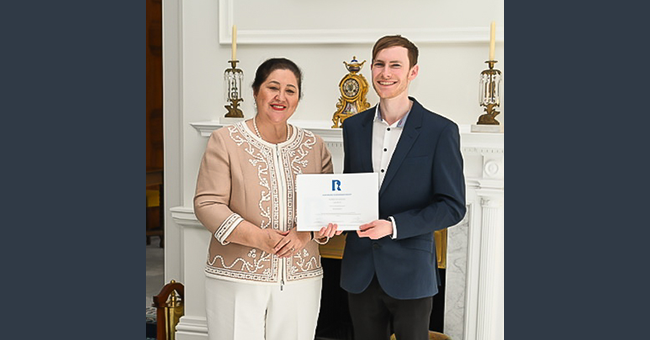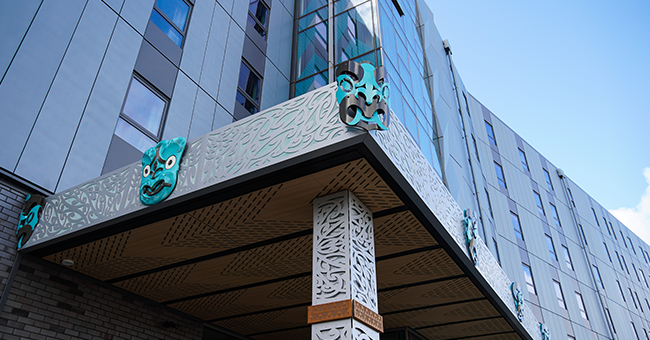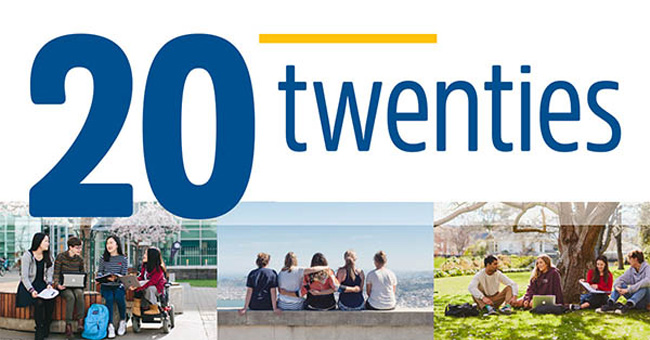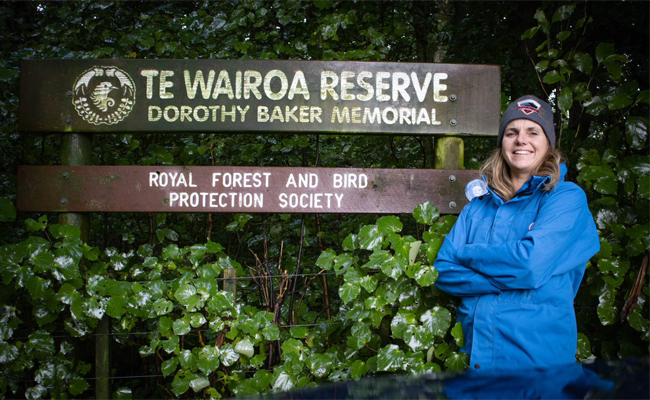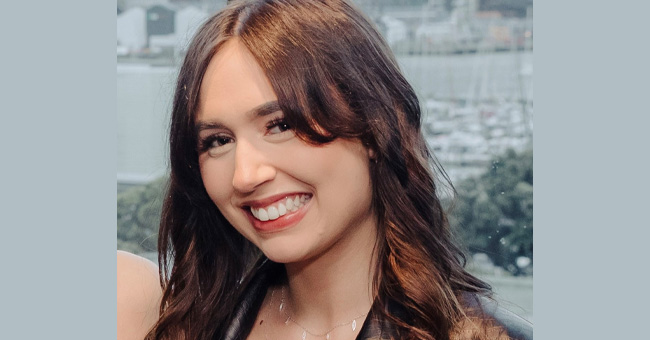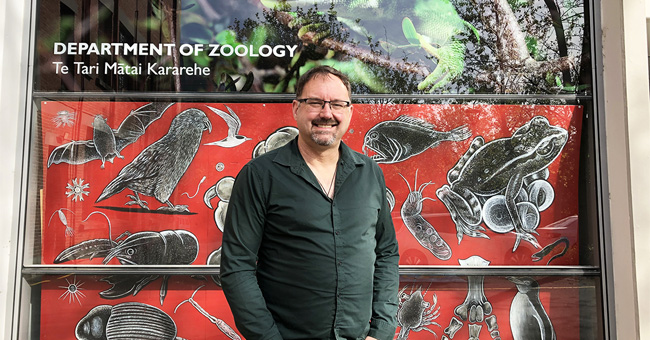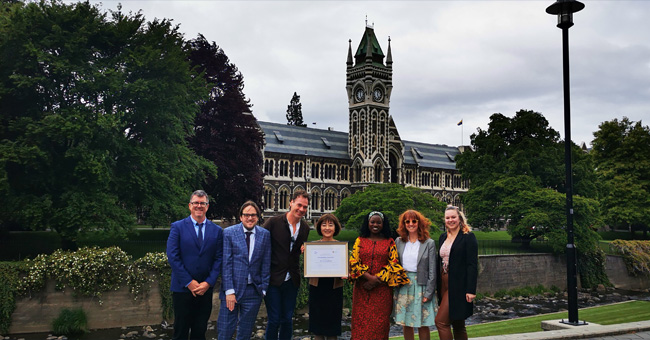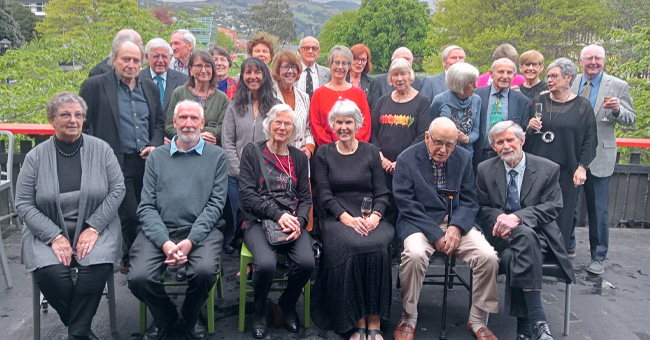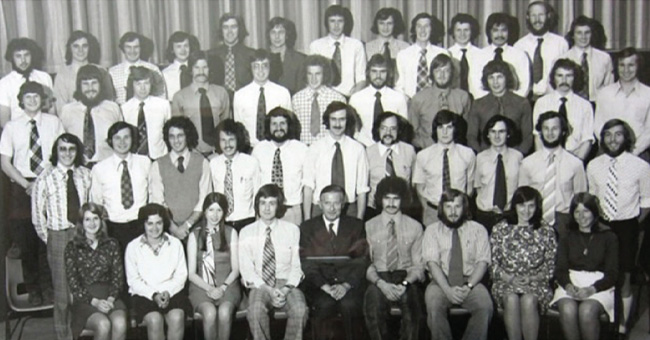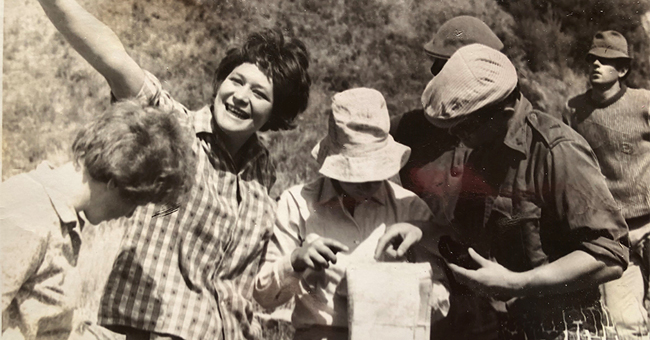@Otago Issue 37
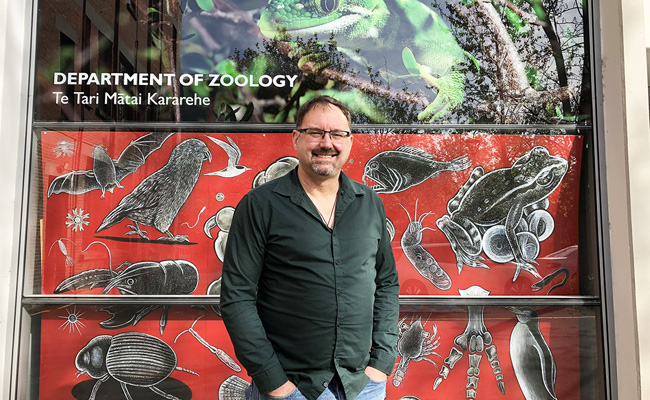
Professor Ross Thompson who is at Otago for the next two months as the inaugural Carolyn Burns Visiting Fellow in Freshwater Sciences.
It’s more than 20 years since Professor Ross Thompson graduated from Otago, but he says arriving back in the city to take up the inaugural Carolyn Burns Visiting Fellowship in Freshwater Sciences felt like coming home.
“It’s amazing to be back. I graduated in 2001 with my PhD and it’s funny to still feel like I’m home the minute you drive over the hill and look down on the harbour.”
Professor Thompson is the Foundation Director of the Centre for Applied Water Science and co-Director of the Institute for Applied Ecology at the University of Canberra.
After a two-year delay in taking up the Fellowship due to COVID, Professor Thompson arrived at the beginning of October and will spend two months based in the Department of Zoology collaborating with colleagues and undertaking new work investigating the effects of climate change on aquatic habitats.
Over the years, he has kept in touch with his Otago PhD supervisor Professor Colin Townsend and colleagues Professors Gerry Closs and Christoph Matthaei. For his PhD, he looked at the effects of forestry on side streams and how we could reduce the impacts of forestry on waterways, and in 2009 returned with his own Honour’s student who resampled some of his PhD field sites.
Originally however, Professor Thompson had flirted with the idea of going to medical school, and then thought about marine science, before ending up studying freshwater science. A highlight of his studies were residential field courses, for both Geology and Zoology.
“The first time you are out in the field with a whole lot of people doing science, you see the real passion people have for what they do. It’s harder to communicate that in a lecture theatre.”
He also enjoyed his time at St Margaret’s College, especially being so close to campus. “You’re living and breathing university life. It’s a unique Otago experience, that real academic town and gown immersion.”
Professor Thompson’s connection with Dame Carolyn goes back to those early student days.
“I remember my first ever lecture taught by Carolyn Burns. She was teaching us about Annelids in second-year Zoology, so that would have been in 1994. One of my first exposures to real zoology would have been with Dame Carolyn.”
He says the Fellowship provides an opportunity to connect to the legacy of Dame Carolyn’s achievements, and those of another distinguished alumna, Hilary Jolly, who was one of the first women graduates from aquatic sciences. Professor Thompson was awarded the Hilary Jolly Medal in 2020 from the Australian Freshwater Sciences Society.
“It’s really nice to connect to that legacy of women in science who really changed my field profoundly. It was very fisheries orientated, it was 80 per cent male, there were almost no female scientists and they have provided a basis for what is now a field which is probably 60-70 per cent female.”
He says coming back gives him the chance to give back to the University and Department of Zoology, “because I took a lot away from it”.
Professor Thompson’s research interests are biodiversity and restoration of landscapes, mainly in freshwaters. While in Dunedin he will work with regional council databases, which hold ecological information gathered over a long period of time and which lend themselves well to climate change research, trying to look for longer term trends.
In recent years he has worked closely with Australian Aboriginal colleagues publishing on the challenges and opportunities for integrating Indigenous Knowledge into water management, and he hopes to have conversations and build relationships with academics working in Mātauranga Māori-led research.
He will also work with graduate students and would like to establish exchange pathways between the University of Canberra and Otago to provide students with some overseas experience.
Throughout his Fellowship and through the inaugural Carolyn Burns Lecture, (in the Hutton Theatre at 4pm on Tuesday 28 November), Professor Thompson hopes to “lift the profile of the amazing freshwater ecology that goes on at Otago, and the legacy that has. And through the public lecture reach out to people and remind them how important water is to everything that happens in New Zealand and our economy and way of life”.
In the lecture, From tēnā koutou to yaama: the past, present and future of freshwaters in a stressed-out world, Professor Thompson will describe emerging challenges for freshwater management, including pollution, climate change, over-allocation and weaving together knowledge systems across cultures.
He will talk about the importance of a ‘joined-up’ approach to the study and management of freshwater environments, and the exciting research frontiers that open in social-ecological thinking and ecosystem management.
Professor Thompson is a past President of the Australian Freshwater Sciences Society and a Foundation Board member of the Biodiversity Council. He has previously acted as Deputy Vice Chancellor Research and Enterprise and Dean of Science at the University of Canberra and has sat on the Australian Research Council College of Experts and the New Zealand Marsden Panel.
As well as establishing the Visiting Fellowship in 2020, the Dame Carolyn Burns Chair in Lake Science/Te Tumuaki o te Pūtaio o te Roto was established at the University in 2021 with the support of a substantial gift from Emerita Professor Dame Carolyn Burns CBE.
Dame Carolyn made an initial gift to the Otago Foundation Trust and will make further gifts over the coming years to support the endowment for the Chair, which has been established in her name. At the same time, the University is fundraising to create an endowment fund which will ensure the Chair can be funded in perpetuity.
